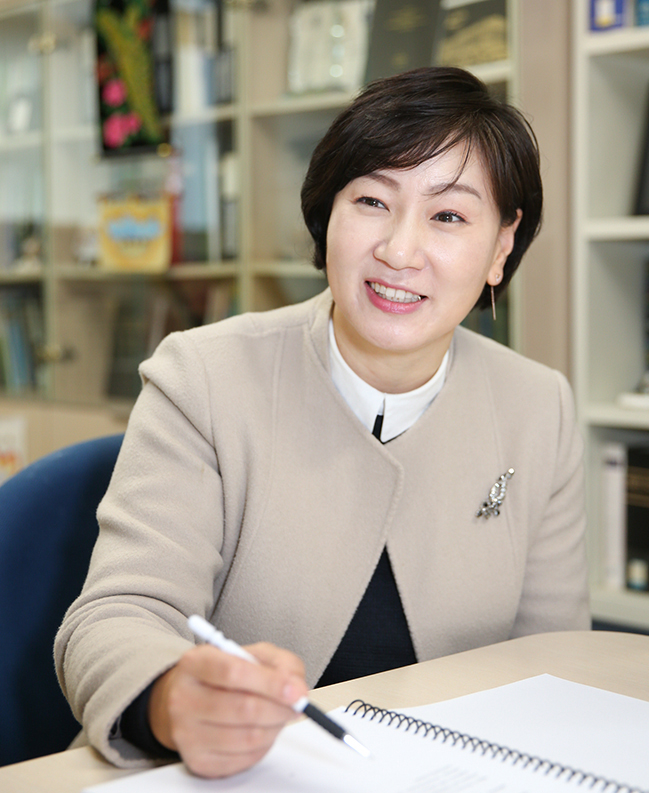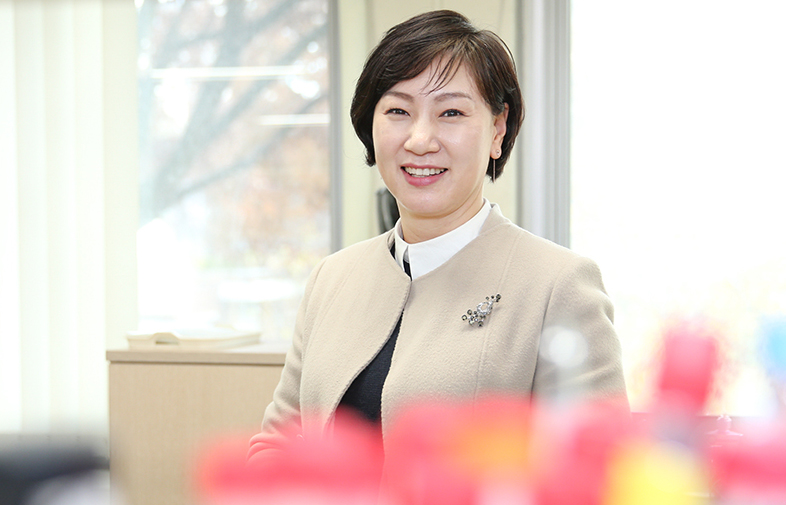[Korean Scientist] Department of Horticulture & Life Science Professor Moon Yong-sun N
No.88925- Writer pr
- Date : 2016.12.28 10:35
- Views : 8506
Pioneer of Korean 'edible vaccine' research
Only Korean to earn PhD at the Boyce Thompson Institute for Plant Research at Cornell University
Significant achievement in research for developing host cells for transformation
Also engaged in multi-functional utilization research of horticulture
[Electronic newspaper - Korean Scientist, December 5, 2016]
Only Korean to earn PhD at the Boyce Thompson Institute for Plant Research at Cornell University
Significant achievement in research for developing host cells for transformation
Also engaged in multi-functional utilization research of horticulture
[Electronic newspaper - Korean Scientist, December 5, 2016]

"Due to the characteristics of the research sector, fast changes and development cannot be expected like other technologies and industries like other academic fields for horticulture. However, by integrating basic academics and bio-engineering such as plant physiology and genetics, the value of horticulture crops and agricultural products are rising not only as food ingredients for general consumers, but also for utilization by the medical and industrial sectors."
YU Department of Horticulture & Life Science Professor Moon Yong-sun (46) is a pioneer in research on 'edible vaccines' in Korea. Professor Moon earned her PhD at Cornell University, which is especially famous for its research in edible vaccines. The Boyce Thompson Institute for Plant Research at Cornell was the first place to begin edible vaccine research in the United States and Professor Moon is the only Korean who earned a PhD here.
Professor Moon, who researched development of edible vaccines at Cornell University from 1996, concentrated on research for acquiring vaccine effects by manifesting specific vaccines at specific times from plant seeds and using it in animal feed.
Professor Moon said, "Research on edible vaccines achieved considerable success through 20 years of research since the 1990s. Despite this, there are difficulties in commercialization due to political conditions and issues on understanding by consumers." She added, "R&D has reached a level in which vaccine effects can be manifested by consumption for both animals and humans. First off, by using feed containing vaccines in the poultry industry that uses 100% corn feed, it will help greatly for livestock farms." "In addition, we have the cornerstone for producing orally-administered vaccines that can take the place of vaccine injections by developing transformants that can produce vaccines using bananas and tomatoes." She further added, "It is expected that by providing the basis for manifesting vaccines that can prevent Newcastle disease in chickens only in corn seeds, it will be possible to not only produce vaccines that can be used in poultry and pork farms, while also lower costs for feeds."
Professor Moon is also reaping significant achievements in research on developing host cells for transformation (genetically transforming bio specimens or cells through DNA given from the outside) in addition to edible vaccine research. Host cells for transformation mainly used in past studies were microorganisms such as E. coli and agrobacterium, and had issues due to high costs. Due to this, the need to develop new host cells to manifest foreign proteins for transformation was continuously raised.

Professor Moon developed a new microorganism host cell that can produce foreign proteins like vaccines by utilizing the pectobacteria, which is a pathogen that can cause soft rots in cabbage and potatoes. Professor Moon's studies suggest new ways to utilize pathogens that can cause diseases in crops, and therefore, it is expected to have significant industrial and economic ripple effects as it will broaden the range of using microorganisms.
Professor Moon said, "By providing new pectobacteria host cells for excessive foreign protein manifestation and transformation, it is expected that there will be more options for researchers, and that it will have a cost-saving effect by eliminating the refining stage that is necessary for mass production of foreign proteins such as for vaccines."
Professor Moon also said, "I have recently become interested in the functional material analysis, anti-oxidizing and anti-cancer effects of horticultural crops. In order to introduce the western vegetable 'rhubarb' that people eat the stems of like celery in Korea, I am conducting research on the cultivation features and its anti-oxidizing and anti-inflammation effects." She added, "I will make a comparative analysis on the medicinal effects of rheum palmatum (a kind of rhubarb for which its roots are used for medicinal purposes in Asia) to study the various utilization possibilities as horticultural crops such as using the stems for food, roots for medicines, and leaves for disinfection and insecticides."